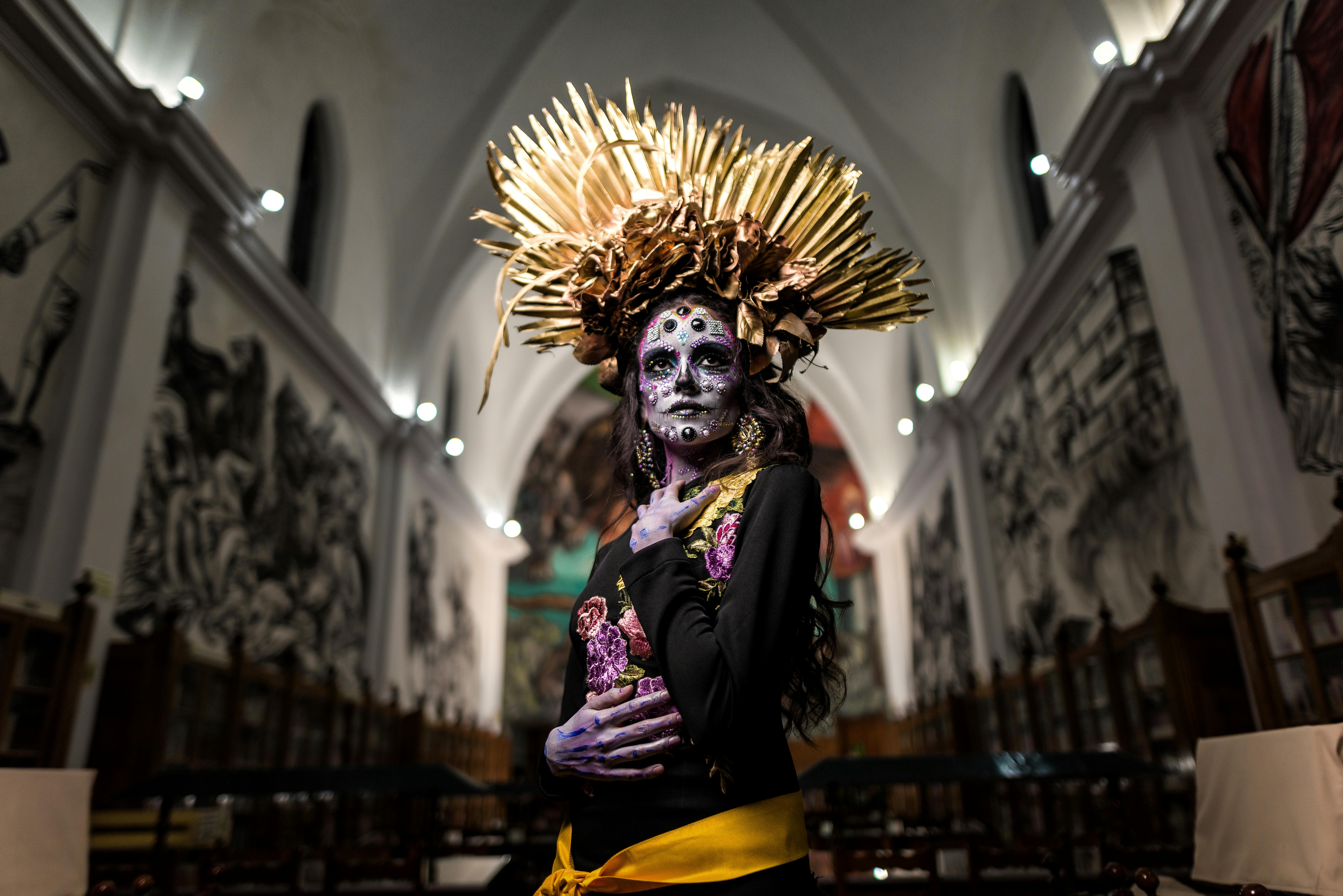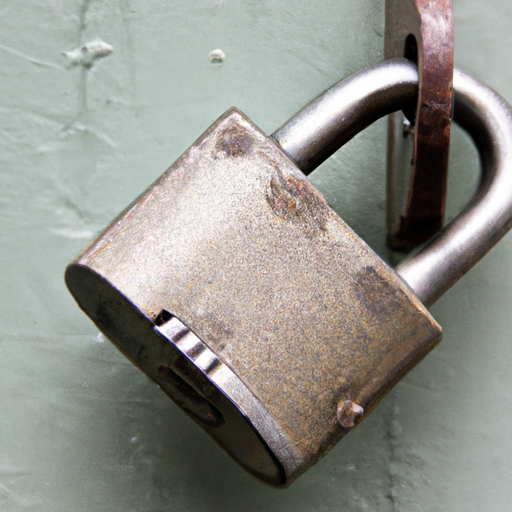In today’s digital age, social media has become an integral part of our lives, revolutionizing the way we interact, communicate, and share information. However, with this vast pool of content being created and shared across various platforms, the issue of social media content copyright has emerged as a prominent concern. As businesses strive to leverage the power of social media for marketing, it is essential for them to understand the legal aspects and implications surrounding the use of copyrighted material. This article aims to shed light on the topic of social media content copyright and provide businesses with valuable insights to navigate this complex landscape. By exploring frequently asked questions and offering concise answers, we aim to equip businesses and business owners with the knowledge needed to make informed decisions and safeguard their online presence.
Understanding Social Media Content Copyright
In today’s digital age, social media platforms have become a powerful tool for individuals and businesses alike to connect, share information, and promote their brands. However, with the widespread use of social media also comes the risk of unauthorized use of copyrighted content. Understanding social media content copyright is crucial for protecting your intellectual property and avoiding legal complications.
What is Social Media Content?
Social media content refers to any form of media, such as text, images, videos, or audio, that is shared and distributed through social media platforms. This can include posts, comments, messages, profiles, and even advertisements. Social media platforms like Facebook, Twitter, Instagram, and LinkedIn provide users with the ability to create, upload, and share content with others.
The Importance of Copyright
Copyright is a legal framework that grants exclusive rights to creators and authors of original works, such as literature, art, music, and photography. It allows creators to control how their work is used and prevents others from using, copying, or distributing their work without permission. Copyright protection is essential because it incentivizes creativity, preserves the rights of creators, and ensures that they can financially benefit from their creations.
Types of Social Media Content
Social media platforms host a wide variety of content, ranging from personal photos and status updates to professional blog posts and advertisements. It’s important to understand the different types of social media content to effectively protect your copyright.
-
Text: Social media allows users to post text content, such as status updates, tweets, or comments. These can be subject to copyright if they meet the criteria of originality.
-
Images: Photos and images are frequently shared on social media platforms. They can be protected by copyright, and using someone else’s image without permission may infringe on their rights.
-
Videos: Social media platforms enable users to upload and share videos. Both the visual and audio elements of videos may be protected by copyright.
-
Audio: Podcasts, music, and other audio content shared on social media may be protected by copyright. Unauthorized use of copyrighted audio content can result in legal consequences.
-
Links and Articles: Social media users often share articles, blog posts, and other online content. While the content itself may be protected by copyright, sharing a link to the content generally does not infringe on copyright.
Legal Protection for Social Media Content
Copyright protection automatically applies to original works once they are created and fixed in a tangible medium, such as paper, digital files, or social media platforms. However, proving ownership of social media content can be challenging without additional steps.
Copyright Infringement on Social Media
Copyright infringement refers to using, copying, or distributing copyrighted material without the permission of the copyright owner. Social media platforms have made it easier than ever for users to share content, but this convenience has also increased the risk of copyright infringement. Unauthorized use of copyrighted content on social media can lead to legal consequences, including liability for damages and injunctions to remove the infringing content.
Copyright Basics
To understand social media content copyright, it’s essential to have a basic understanding of copyright law itself.
What is Copyright?
Copyright is a form of intellectual property protection that gives the creator or owner of an original work exclusive rights to use, reproduce, distribute, display, perform, and modify the work. These rights are granted automatically to the creator upon the creation of the work, without the need for registration or notice.
Copyright Ownership
The person or entity that creates an original work is usually the initial owner of the copyright. In the case of social media content, the creator of a post, image, video, or other content generally holds the copyright to that content. However, there are exceptions for works created in the course of employment or commissioned works, where the copyright may belong to the employer or the person commissioning the work.
Copyright Registration
While copyright protection automatically applies to original works, registering your copyright with the United States Copyright Office provides additional benefits. Registration creates a public record of your copyright claim, allowing you to enforce your rights more easily and potentially seek statutory damages and attorney’s fees in an infringement lawsuit.
Duration of Copyright
In the United States, the duration of copyright protection depends on several factors, including the type of work and the date of its creation or publication. Generally, works created by an individual are protected for the creator’s lifetime plus 70 years. For works created by a corporation, the duration is typically 95 years from the date of publication or 120 years from the date of creation, whichever is shorter.

Copyright and Social Media
As social media continues to evolve, so do the complexities surrounding copyright and the use of copyrighted works on these platforms.
Copyright Ownership on Social Media
The ownership of copyrighted works shared on social media can be confusing. In most cases, the person who creates the content holds the initial copyright. However, social media platforms often include terms of service that may grant the platform some rights to the content, such as the ability to display, distribute, and sublicense the content to other users. It’s important to review the terms of service for each platform to understand the extent of your rights as a content creator.
Copyrighted Works on Social Media
Just like in any other medium, social media platforms can host both copyrighted and non-copyrighted works. It’s essential to be aware of the copyright status of the content you come across on social media to avoid infringing on others’ rights.
Using Copyrighted Content on Social Media
Using someone else’s copyrighted content on social media without permission is generally considered copyright infringement. However, there are instances where the use of copyrighted content may be permitted under the fair use doctrine or when the copyright owner has granted a license to use their work. It’s essential to obtain proper permissions or licenses before using copyrighted content on social media to avoid legal trouble.
Fair Use and Social Media
Fair use is a legal doctrine that allows for the limited use of copyrighted materials without obtaining permission from the copyright owner. It aims to balance the rights of content creators with the freedom of expression and the public interest. When determining if a particular use is considered fair use, courts consider factors such as the purpose and character of the use, the nature of the copyrighted work, the amount and substantiality of the portion used, and the effect of the use on the potential market for the copyrighted work.
Fair use can apply to social media content in certain circumstances, such as using a small portion of a copyrighted video for a critique or commentary. However, it is essential to understand that fair use is subjective, and courts make case-by-case determinations based on the specific facts of each situation.
Creative Commons and Social Media
Creative Commons is a licensing system that allows content creators to share their work with others while retaining some rights. Content licensed under Creative Commons can be freely used and shared, as long as the conditions of the license are followed. Many social media users choose to release their content under Creative Commons licenses, allowing others to use their work within the specified restrictions.
Protecting Your Social Media Content
To safeguard your social media content and prevent unauthorized use, there are several steps you can take.
Watermarking and Branding
Watermarking your images or adding your logo or brand name to your content can deter others from using your work without permission. It serves as a visual reminder of your ownership and can make it easier for others to identify your work.
Terms of Service and Copyright
Reviewing the terms of service provided by each social media platform is crucial to understanding the rights and limitations associated with your content. While some platforms may grant the platform certain rights, it’s essential to ensure that your rights as a creator are respected and protected.
Monitoring and Reporting Infringement
Regularly monitoring your social media accounts for unauthorized use of your content is essential. If you discover that someone has infringed on your copyright, promptly gather evidence of the infringement, such as screenshots or links to the infringing content. Report the infringement to the social media platform and follow their procedures for reporting copyright violations.
Trademark and Social Media
In addition to copyright, trademark law also plays a significant role in protecting intellectual property on social media platforms.
Trademark Basics
A trademark is a word, phrase, symbol, or design that identifies and distinguishes the source of goods or services. Trademarks serve to protect the brand names, logos, and slogans associated with products or services. Registering a trademark with the United States Patent and Trademark Office provides exclusive rights to use the mark and prevents others from using similar marks in a way that may cause confusion.
Using Trademarks on Social Media
Social media provides a platform for businesses to build and promote their brands. When using trademarks on social media, it’s important to use them appropriately and distinguish them from other content. Proper use includes displaying the trademark in the correct font, capitalization, and symbol, such as ® or ™, to indicate trademark status. Misuse or unauthorized use of trademarks on social media can lead to legal action, including claims of trademark infringement and dilution.
Trademark Infringement on Social Media
Trademark infringement occurs when someone uses a trademark in a way that is likely to cause confusion, mistake, or deception about the source of a product or service. On social media, trademark infringement can occur through the unauthorized use of a trademark in usernames, profiles, posts, or advertisements. Businesses should closely monitor social media platforms for potential trademark infringements and take appropriate action to protect their brand.
Social Media Platforms’ Copyright Policies
Each social media platform has its own copyright policy in place to address copyright issues and provide mechanisms for reporting copyright infringement. It’s important to familiarize yourself with the copyright policies of the social media platforms you use to understand the procedures for reporting copyright violations.
Facebook’s Copyright Policy
Facebook has implemented a copyright policy that allows copyright owners to report copyright infringements through its reporting tools. Facebook can remove or disable access to infringing content and suspend or disable accounts of repeat infringers.
Twitter’s Copyright Policy
Twitter also has a copyright policy in place that allows for the reporting of copyright infringements. Twitter will review and respond to valid copyright infringement reports by removing or disabling access to infringing content and taking appropriate action against repeat offenders.
Instagram’s Copyright Policy
Instagram has similar copyright policies in place, providing tools for copyright owners to report infringements. Instagram can remove or disable access to infringing content and disable accounts of repeat offenders.
LinkedIn’s Copyright Policy
LinkedIn has its own copyright policy that addresses copyright infringements on its platform. Copyright owners can report violations, and LinkedIn will take appropriate action, including removing or disabling access to infringing content and disabling accounts of repeat infringers.

Steps to Take if Your Content is Infringed
If you discover that your social media content has been infringed upon, there are several steps you can take to address the situation and protect your rights.
Documentation and Evidence
Gather evidence of the infringement, such as screenshots, links, or timestamps, to support your claim. This evidence will be crucial in proving that your copyright has been violated.
Cease and Desist Letters
A cease and desist letter is a formal request to the infringing party to stop using your copyrighted content. Sending a cease and desist letter can often resolve copyright disputes without the need for legal action.
DMCA Takedown Notices
Under the Digital Millennium Copyright Act (DMCA), content creators can send takedown notices to internet service providers, hosting platforms, or social media platforms to prompt the removal of infringing content. Following the proper procedures for issuing a DMCA takedown notice is important to ensure compliance with the law.
Legal Action
If other measures fail to resolve the infringement issue, you may need to consider taking legal action. Consulting with an experienced copyright attorney can help you navigate the legal process and protect your rights.
Case Studies: Famous Social Media Copyright Cases
Looking at famous copyright cases related to social media can provide valuable insights into the importance of protecting your content.
The Associated Press vs. Shepard Fairey
In 2009, artist Shepard Fairey created a poster depicting then-President Barack Obama during his presidential campaign. Fairey used an Associated Press photograph as a reference without obtaining permission. The Associated Press sued Fairey for copyright infringement, and the case was ultimately settled out of court. This case highlighted the significance of securing proper permissions or licenses for the use of copyrighted works, even in the context of artistic expression.
Photographer’s Copyright vs. Richard Prince
In 2015, artist Richard Prince appropriated photographs from Instagram and displayed them in an exhibit without permission from the photographers. Several photographers filed lawsuits against Prince, claiming copyright infringement. The jury ultimately ruled in favor of the photographers, affirming the importance of respecting the rights of creators, even in the realm of social media.
The Instagram Copyright Controversy
Instagram, like other social media platforms, has faced various controversies surrounding copyright infringement. In the past, there have been allegations of Instagram users reposting copyrighted images without permission or attribution. Instagram has taken steps to address this issue by allowing users to report copyright infringements and providing tools for copyright owners to protect their work.

FAQs about Social Media Content Copyright
What qualifies as social media content?
Social media content refers to any form of media, such as text, images, videos, or audio, that is shared and distributed through social media platforms. This can include posts, comments, messages, profiles, and advertisements.
Do I automatically own copyright on my social media content?
Yes, as the creator of social media content, you automatically hold the initial copyright to that content. However, the terms of service of each social media platform may grant the platform certain rights to the content.
Can I use someone else’s content on social media without permission?
Using someone else’s copyrighted content on social media without permission is generally considered copyright infringement. However, there are exceptions, such as fair use, that may allow for the limited use of copyrighted content under certain circumstances.
What is fair use in the context of social media?
Fair use is a legal doctrine that allows for the limited use of copyrighted materials without obtaining permission from the copyright owner. When determining if a particular use is considered fair use, courts consider factors such as the purpose and character of the use, the nature of the copyrighted work, the amount and substantiality of the portion used, and the effect of the use on the potential market for the copyrighted work.
What should I do if my social media content is stolen or copied?
If you discover that your social media content has been infringed upon, you should gather evidence of the infringement, such as screenshots or links, and report the infringement to the social media platform. You can also consider sending a cease and desist letter or issuing a DMCA takedown notice. In some cases, consulting with an experienced copyright attorney may be necessary to protect your rights and seek legal remedies if needed.
For more specific legal advice and guidance regarding social media content copyright, it is recommended to consult with an experienced copyright lawyer. They can assess your specific situation, provide tailored advice, and help you protect your intellectual property rights in the context of social media.
